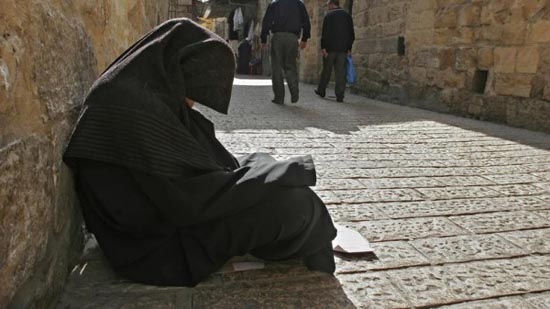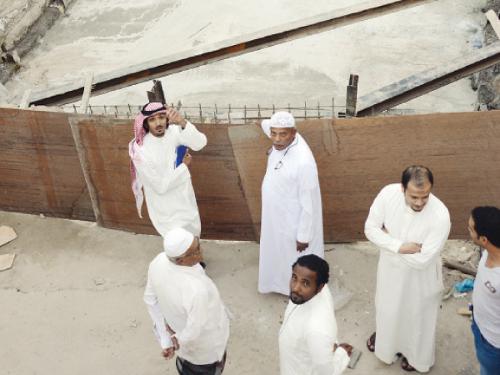A 100-Year-Old Beggar Died This Week. What She Left Behind For Others Is Truly Astounding
Unbeknownst to her supporters, a blind beggar who was a fixture on the streets of Saudi Arabia was actually a millionaire, and reportedly left everything to the poor.
A 100-year-old woman in Saudi Arabia, who spent decades begging on the streets, has died leaving behind a secret fortune of gold coins, jewellery and a real estate portfolio worth a whopping USD10,66,580
The blind woman had begged for 50 years on the streets of Jeddah, before she suddenly died at her home, leaving behind a sizable fortune.
Known as Eisha, the beggar had amassed a fortune valued at Saudi Riyal 3 million (USD 799,935), including four buildings in the Al-Balad district of Jeddah, and an additional Saudi Riyal 1 million (USD 266,645) in jewels and gold coins.
Before she died, she gave her friend, Ahmad Al-Saeedi, her will which states that her money and possessions should go to the needy
Al-Saeedi claimed that Eisha had given him her will, which stipulates that all her money and property should be distributed among the poor. Al-Saeedi said he had informed the authorities, but there was no response.
Neighbors mourn the death of Eisha after her burial at Ummana Hawwa Cemetery
Image via saudigazette.com.saAhmed al-Saeedi grew up with Eisha in the same district since they were children and spent a considerable amount of time caring for her. He said Eisha did not have any relatives except her mother and sister, both of who were beggars, and alleged that the four women were able to build up a small fortune while scrounging on the streets of Jeddah.
alarabiya.net“They used to get a lot of sympathy and assistance from philanthropists throughout the year, especially during Eid. Eisha continued to beg after the deaths of her mother and sister. She was just an old, blind woman who did not have any relatives in this world,” said an emotional Saeedi who buried her in Ummana Hawwa (Our Mother Eve) Cemetery in the al-Ammariya neighborhood.
When Al-Saeedi learned that his friend was wealthy, he said he advised her to give up panhandling
Saeedi was one of the few people who knew of the wealth Eisha possessed. When asked if he ever broached the subject with her, Saeedi said he had tried to convince Eisha to stop begging on several occasions.
“I asked her to give up this profession as she possessed a huge amount of wealth but she always refused and said she was preparing for hard times,” he said.
Eisha had given all of the gold coins she had to Saeedi and told him to keep them until she decides when the time is right to sell them. That was 15 years ago when the coins were each worth USD67, but at current market prices, they are valued at USD267 each.
alarabiya.netFeeling the magnitude of the responsibility, Al-Saeedi said he reported the matter to the police and a local court and was informed the matter will be dealt with according to regulations
“Until now, neither the police nor the courts have done anything so I was compelled to hand over the fortune to one of the most respected and trusted residents of the district, who has promised to give it to the authorities. All of my neighbors witnessed me handing over the gold and money Eisha had kept with me for safekeeping,” he said.
Eisha let a number of families stay in her buildings for free, but now that she has died, Al-Saeedi is insisting that the properties be handed over to the authorities
Al-Saeedi said a number of families live in the four buildings Eisha owned. She had allowed them to live in the buildings but after her death, they were required to vacate them so they can be formally handed over to the concerned authorities.
alarabiya.netResidents of the buildings said no one could ask them to vacate them because they were never rented to them in the first place. One resident who spoke on condition of anonymity said Al-Saeedi had filed a complaint against him for his refusal to vacate the building. He insisted, however, that it was Eisha’s desire that he and the others reside in the building for free.
Neighbors were sympathetic toward the occupants of Eisha’s buildings because, like her, they too were beggars. “They are all poor people. Al-Saeedi is insisting that the properties be handed over to the authorities but where will these poor people go?” asked one neighbor.
Talaat Ghaith, the mayor of Al-Balad, told Arab News that the case is now in the hands of authorities
He said he had documents as well as official police reports that proved that Saeedi had notified the relevant authorities about Eisha’s fortune and properties.
“The old woman hosted several families in her buildings before her death. They lived and grew up with her. After her death, none of the families have left the buildings. Even though I’m the umdah of the district, I have no right to evict them from the buildings. The whole case is before the pertinent authorities that will issue a final decision on it,” he said.


